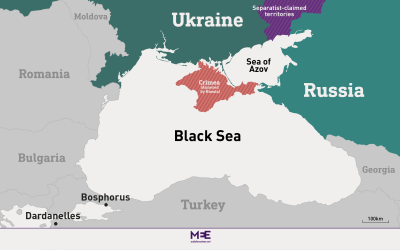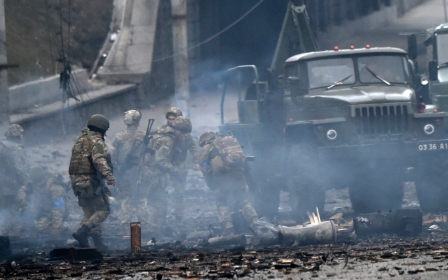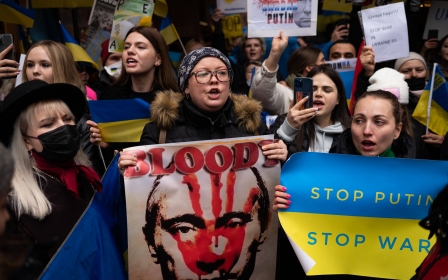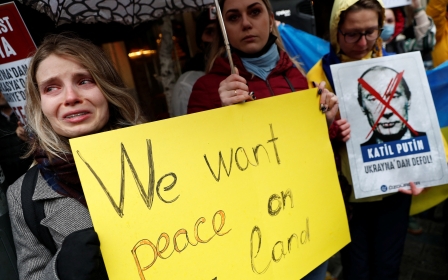Russia-Ukraine war: Turkey denies closing Black Sea to Russian warships
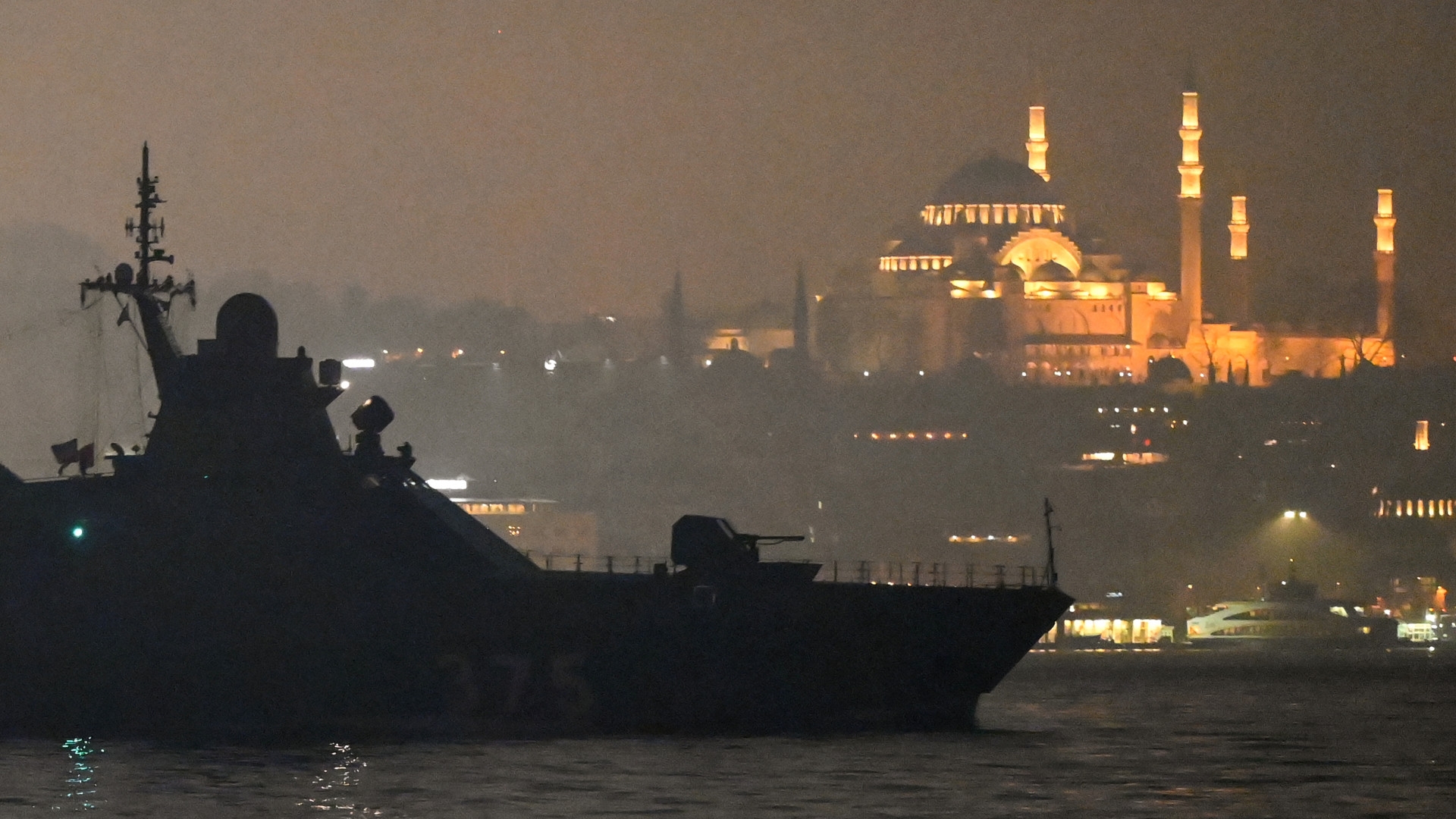
Turkish President Tayyip Erdogan didn't tell Ukrainian President Volodymyr Zelensky that Turkey would close the Bosphorus and Dardanelles straits to Russian warships, a senior Turkish official told Middle East Eye on Saturday.
"President Erdogan didn't promise to close the straits," the official, who is directly familiar with the call, said. "Turkey hasn't made a decision to close the straits to Russian ships yet."
The statement contradicted an earlier tweet by Zelensky, which was posted following his telephone conversation with Erdogan.
New MEE newsletter: Jerusalem Dispatch
Sign up to get the latest insights and analysis on Israel-Palestine, alongside Turkey Unpacked and other MEE newsletters
"I thank my friend Mr President of Turkey @RTErdogan and the people of Turkey for their strong support," Zelensky tweeted.
"The ban on the passage of Russian warships to the Black Sea and significant military and humanitarian support for Ukraine are extremely important today. The people of Ukraine will never forget that!" the Ukrainian leader continued.
Zelensky's tweet may have been an effort to force Ankara's hand.
Erdogan spoke to Zelensky on Saturday, offering reassurance that Ankara was making efforts for an immediate ceasefire, as well as his condolences over the loss of lives in the Russian attack, according to a Turkish presidency statement.
The statement made no mention of the Black Sea in the presidents' conversation.
Under the 1936 Montreux Convention, Turkey has control over the passage of vessels between the Mediterranean and the Black Sea, making it an essential player in the current conflict between Ukraine and Russia.
Turkish foreign minister Mevlut Cavusoglu earlier this week said that Russia would still be able to send its ships through the straits even if Turkey were to close them.
"Under Montreux Convention on straits, Russia has a right to return its ships to its ports in Black Sea," Cavusoglu said in a TV interview. "Even in the wartime, Russia has a right to do it."
Middle East Eye delivers independent and unrivalled coverage and analysis of the Middle East, North Africa and beyond. To learn more about republishing this content and the associated fees, please fill out this form. More about MEE can be found here.


